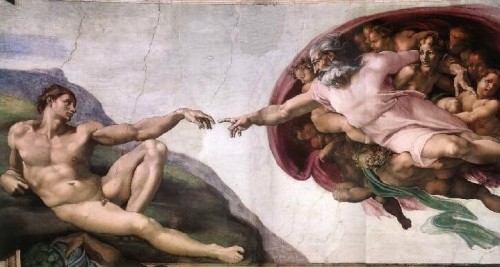I’d just like to type this somewhere: everything is connected. That’s in essence the essence of Platonism. It’s all about reason, and philosophy, but it looks for the ways in which things influence other things. Thus, an image of a compass, of the kind used to draw a circle, is a good metaphor for the Platonist approach. To a two-dimensional person, who lacks the perspective of a third dimension, the two points of the compass on a piece of paper would seem to be separate. But to someone with the proper perspective (wisdom, knowledge, insight, education, however you’d like to put it), they can see that there is much more going on than simply two points on paper, one of which is fixed and the other which draws circles around it. On a higher plane, the two points draw closer to one unity, which symbolizes how they are both emanations from one idea. Now, one doesn’t have to literally believe in ‘unities’ or even ‘ideas,’ or ‘ideals’ as if they truly existed, let alone believe in ’emanations,’ to see that, very often times, there are a lot of things which don’t seem to be connected, but which are, for example, spitting on the sidewalk and dictatorship (see previous post).
And the most brilliant use of this idea that I know of, which dates from the time when it was still possible to believe in a Ptolemaic universe, i.e., before Galileo came and proved once and for all that the Sun was the center of the solar system, and that most of the lovely medieval ideas that go along with the ‘harmony of the spheres’ idea were proven to be scientifically impossible, is John Donne’s poem, A Valediction: Forbidding Mourning. Which I’ll reproduce here: (more…)
Read Full Post »

![harvesters[1] harvesters[1]](https://triviumquadrivium.files.wordpress.com/2009/10/harvesters1.jpg?w=500&h=371)